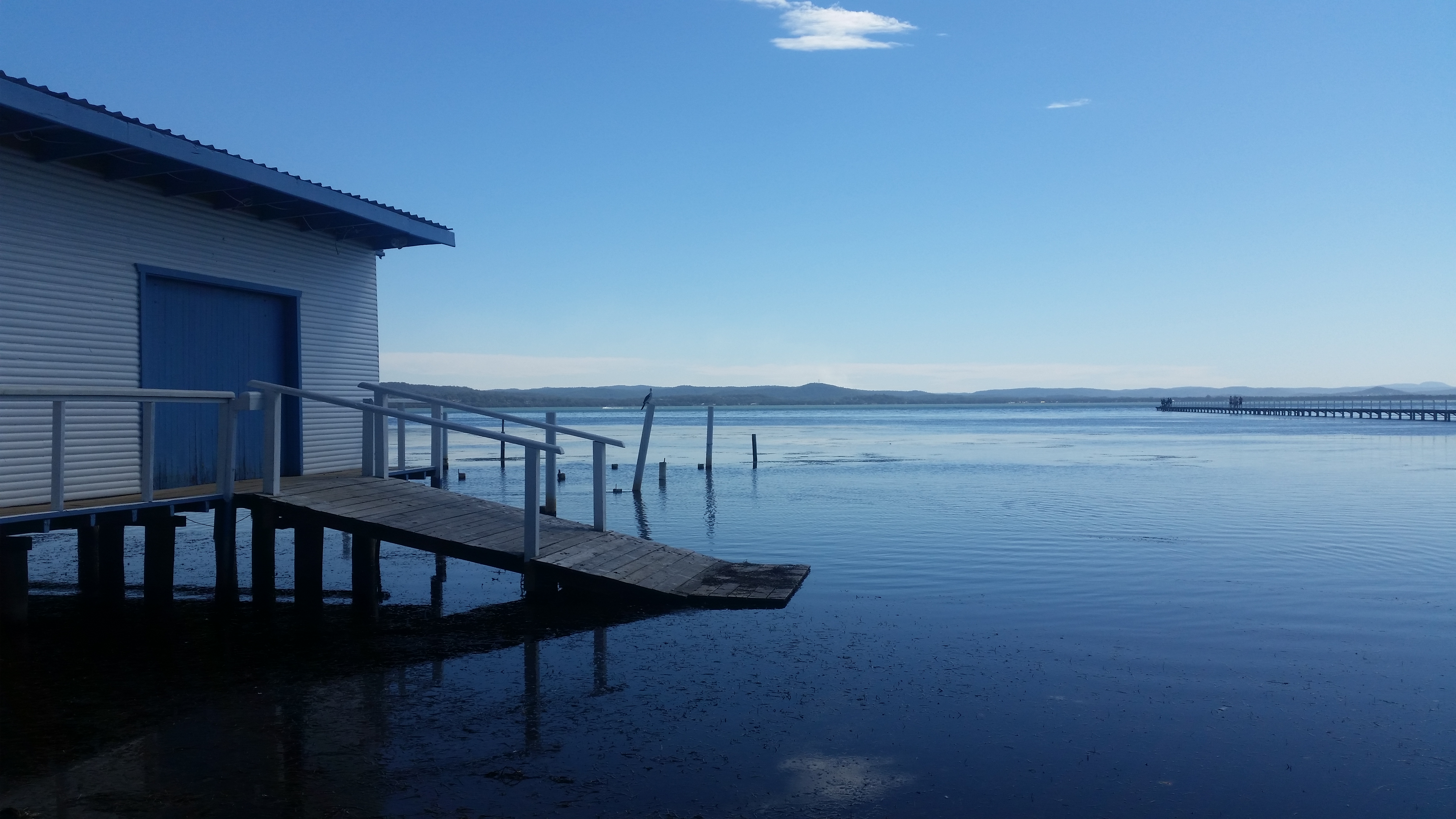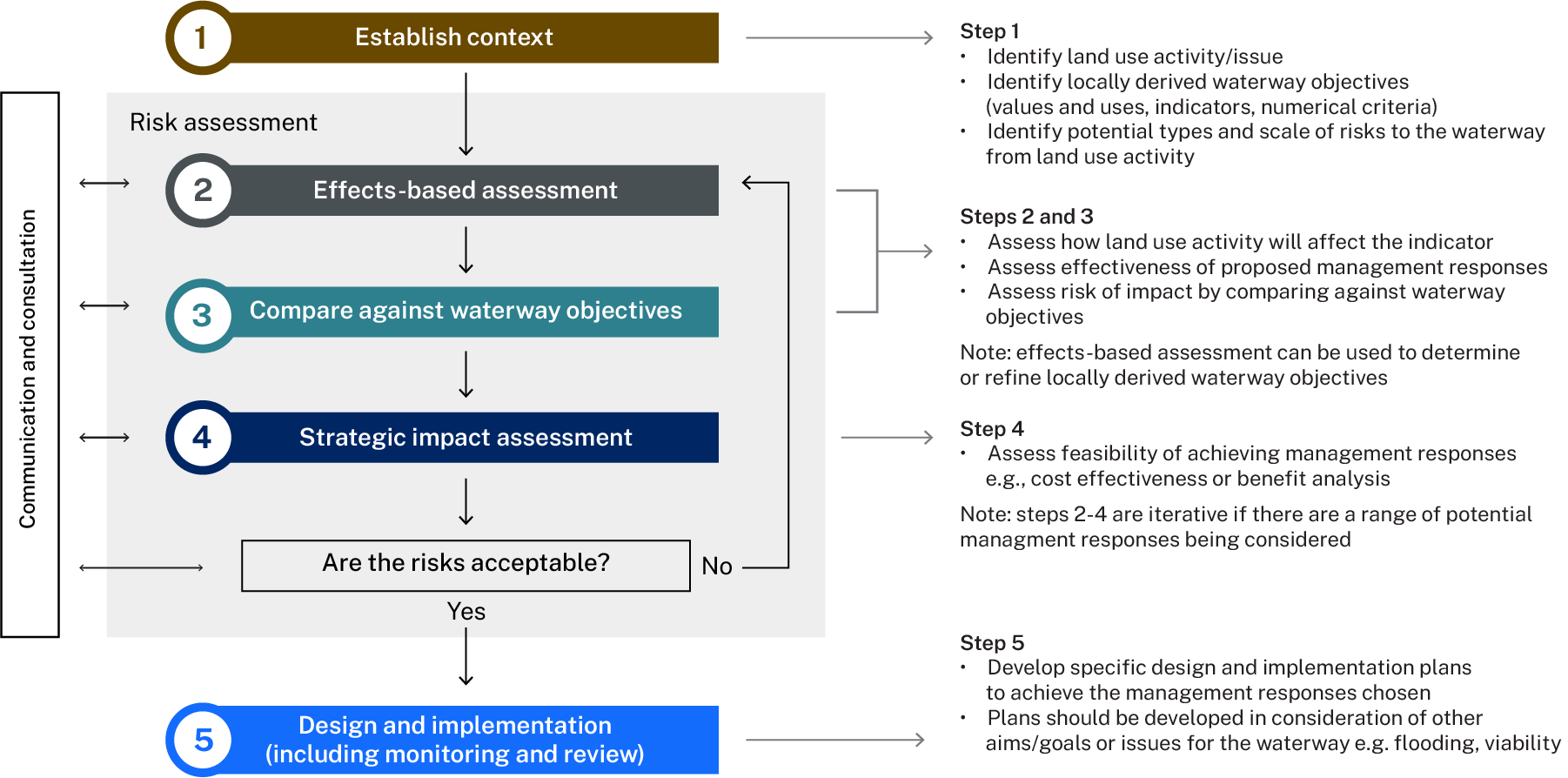Building capacity on the risk-based framework
 Tuggerah Lakes. Photo by: Jocelyn Dela-Cruz
Tuggerah Lakes. Photo by: Jocelyn Dela-Cruz
Overview
Why is this project important?
Healthy waterways support people, plants and animals. Managing the health of our waterways helps to support more liveable cities and resilient communities.
The Risk-based framework for considering waterway health outcomes in strategic land-use planning decisions helps councils to assess the impacts of land-use activities on local waterways.
It brings together, and operationalises, the NSW government’s policies and strategies for managing the water quality and health of our waterways.
The Risk-based framework may be useful to anyone developing a Coastal Management Program to manage a waterway, including local councils.
It is a logical, science-based, best-practice, decision-making tool to be used by councils and other organisations with responsibility for water quality.
The Risk-based Framework combines the key parts of the National water quality management strategy into a five-step process.
It does this by:
- finding out how communities value and use their local waterways
- identifying waterways that are most sensitive to land use activities and require protection from pollution
- working out how management actions lessen the impacts of these activities on waterways to make sure the community’s values and uses are being preserved
- providing a clear and transparent process for management decisions that affect waterways.
The five steps of the Risk-based Framework are outlined in the figure below.

Access the Risk-based Framework dataset for your estuary
We have developed a dataset to help you apply the RBF to an NSW estuary.
The NSW estuary health risk dataset can be downloaded from the NSW SEED portal.
It identifies land-use pressures and consequent risks of impacts on the ecological health of estuaries.
This dataset represents a first-pass risk assessment to help identify priorities for management actions or future studies on the effects of land use activities on the health of estuaries in NSW.
The dataset is accompanied by the report, is also available on the SEED portal.
Learning how to apply the Risk-based framework
We are developing targeted resources, tools and training packages to help industry, councils and other waterways managers better understand and apply the RBF.
Participants attending our training include stormwater engineers, planners, modellers and consultants who may need to apply the Risk-based framework.
We have rolled out our first pilot training program on the Risk-based Framework across coastal NSW.
The training program currently has two stages:
Skills-based training Stage 1: Getting the RBF Underway in Your Organisation.
- This one-day training introduces the Risk-based Framework, showcases case study applications and outlines the support resources available.
Skills based training Stage 2: Applying the Risk-based Framework – Steps 1-3.
- This one-day training focuses on how to apply stages 1-3 of the Risk-based Framework using both an example and projects stakeholders bring to the training.
We are developing the final part of this first pilot training program on Skills-based training.
- The third stage of the training - Stage 3: Applying the Risk-based Framework – Steps 4-5 will be rolled out in 2024.
What have we achieved?
To date, we have delivered pilot training to 21 local councils and 5 state government organisations across 5 locations in coastal NSW.
Locations
Statewide – the toolkit and training program are applicable to all 184 catchments in coastal NSW.
Local government areas - Statewide
Lead agency
NSW Department of Climate Change, Energy, the Environment and Water (NSW DCCEEW)
Partners
We have been working with GEMS Environmental Management to develop and deliver training.
More information
Integrating the risk-based framework with your coastal management program
This document summarises where the key tasks to deliver the 5 steps of the Risk-based framework for considering waterway health outcomes in strategic land-use planning decisions overlap or directly align with the guidance for the 5 stages of developing a coastal management program.